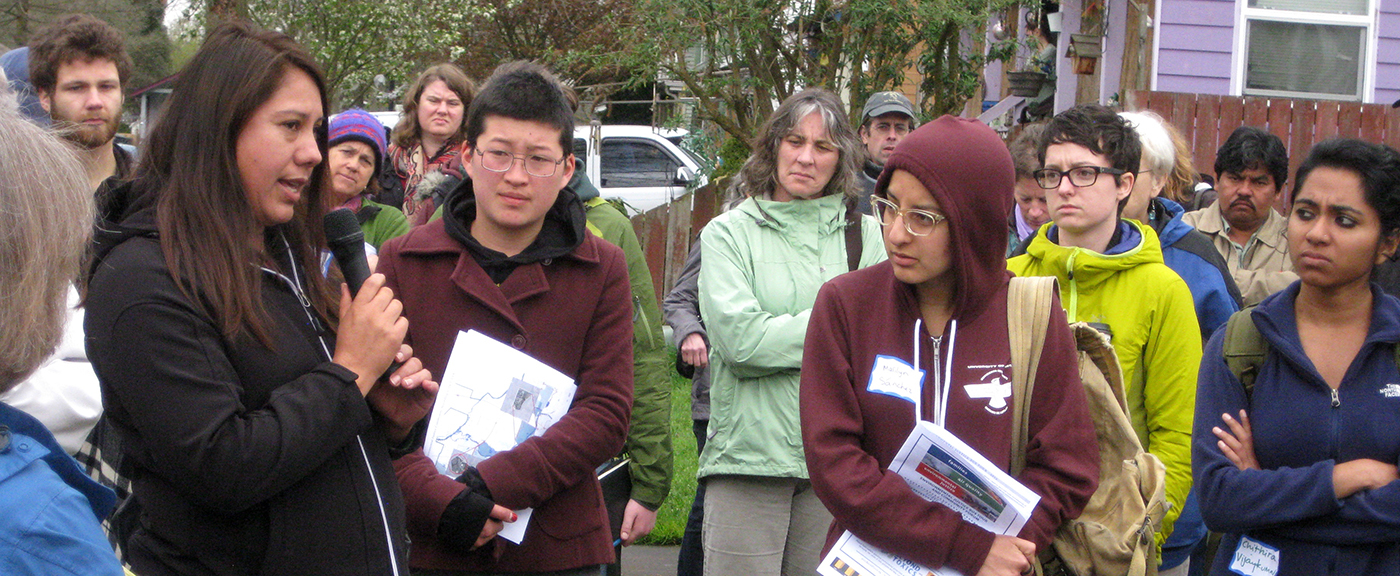Eugene Toxics Right to Know Program
All communities have a fundamental right to know the quality of their neighborhood’s air and water. Toxics Right to Know is a basic tenet of environmental justice.

The Eugene Toxics Right-to-Know Reporting Program (Eugene RTK) is a powerful tool for the public benefit of gathering environmental data and increasing understanding of the factors that contribute to human health and a healthy environment. The program provides the accurate emissions reporting of local industrial polluters. The Eugene RTK was created in 1996 by founders of Beyond Toxics as a voter-approved amendment to the Eugene Charter. The program requires industrial facilities that emit 2,000 or greater of federally listed hazardous substances to provide information to the public concerning the use and disposition of each toxic chemical. Unique to Eugene’s RTK program is the requirement for materials balance accounting. That means a manufacturer must report inputs and outputs in eleven categories, such that total inputs and total outputs are equivalent within the smallest accounting unit used by the program. Polluters report hazardous substances at any annual amount equivalent or greater than 2.2 pounds; for extremely hazardous substances, the reporting threshold is 0.022 pounds.
In the United States, only the state of Massachusetts and the state of New Jersey have similar reporting requirements; no other municipality does.
The public interface of the Eugene Toxics Right-to-Know Reporting Program is an online searchable database. The public can use Eugene Toxics Reporting Program to search by chemical or by polluter to learn about their local environment and to participate in environmental decision-making. In essence, the Eugene Toxics Reporting Program helps give citizens the tools to improve environmental awareness, encouraging them to become involved in the civic duty of protecting environmental health in partnership with local government. Furthermore, accurate and detailed information can help businesses set goals to reduce toxic chemicals and increase efficiency at the same time, leading to an increased profit and public good will.
The Benefits of Toxics Right to Know Programs:





